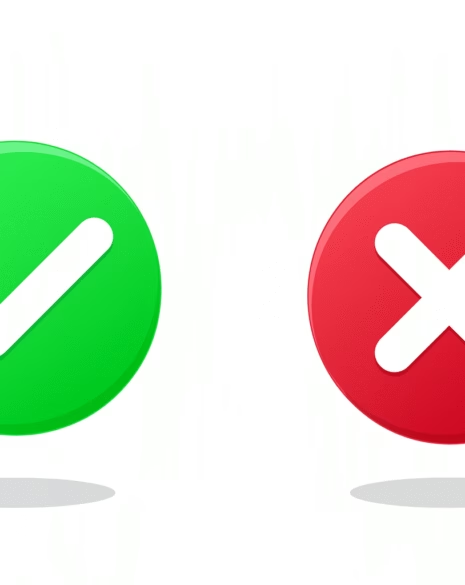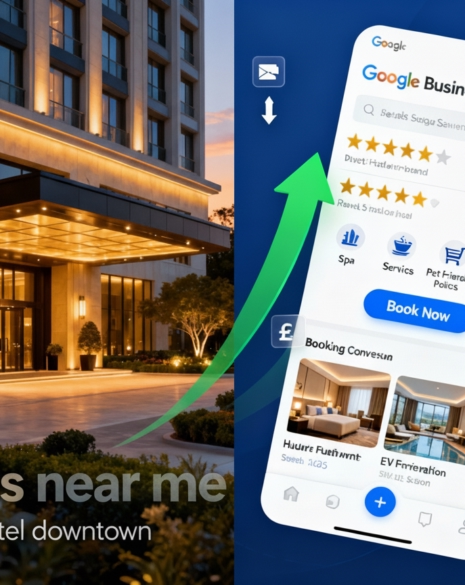Let’s be honest: writing regular blog posts isn’t always realistic. Whether you’re part of an overstretched hotel marketing team, dealing with CMS restrictions, or simply prioritising other channels, blogging often falls to the bottom of the list.
But that doesn’t mean your hotel’s SEO has to stall.
There are plenty of high-impact ways to improve organic visibility without publishing a single article. At Formula, we help hotels build rankings, drive direct bookings, and strengthen local visibility — no content calendar required.
Here’s how to make SEO work smarter for your hotel, even when the blog is off-limits.
Why Skip the Blog?
Many hotels deprioritise blogging not because they undervalue SEO, but because it’s logistically difficult to maintain. Sometimes the marketing team is small. Sometimes blog access sits with head office or an external developer. Sometimes, the ROI from content simply hasn’t justified the effort.
And that’s okay — for now. Because blogging is just one part of the SEO equation. If your website is technically sound, conversion-ready, and fully optimised for local search, you’re already in a strong position to grow your rankings.
Start with What You Can Control
One of the simplest places to begin is your existing website structure. Your homepage, rooms pages, dining section, and gallery can all be enhanced for search visibility — without needing to add anything new.
Let’s take your homepage. It’s often your most authoritative page and your highest-converting one. Yet many hotels overlook its potential for keyword targeting, internal linking, and structured information. By rewriting your homepage headers to include search terms like “luxury hotel in [city]” or “family-friendly stay near [landmark],” you begin signalling relevance for key user searches. From there, you can strengthen internal links to priority pages like your rooms, offers, or direct booking engine — all of which improves crawlability and SEO equity.
Next, check your page titles and meta descriptions. Are they unique, descriptive, and tailored to search intent? A homepage that says simply “Welcome to [Hotel Name]” is missing the opportunity to attract users who are comparing options in the area. Updating this to something more specific — say, “Seafront Boutique Hotel in Brighton | Book Direct at [Hotel Name]” — immediately increases relevance and click-through potential.
Core Web Vitals and Technical Gains
Performance and mobile experience are foundational to your rankings. Google’s Core Web Vitals measure your website’s loading speed, responsiveness, and visual stability — and they influence both visibility and user satisfaction.
If your site is slow, unresponsive, or visually unstable on mobile, those issues will drag down both your SEO and your conversion rate. Work with your developer (or speak to us) to compress images, remove unused scripts, and improve mobile layout rendering. These changes often lead to quick, measurable SEO improvements — without touching a single word of copy.
Local SEO: The Booking Engine You Didn’t Know You Had
Your Google Business Profile is one of the most valuable local SEO tools you have. For guests searching “hotels near me” or planning trips in a specific area, this listing often appears before your website does.
Make sure your listing is fully updated — including your name, address, phone number (NAP), business category, and opening hours. Upload high-quality, current images that reflect the guest experience. And crucially, respond to reviews in a timely, thoughtful way. This doesn’t just improve rankings; it builds trust with potential guests.
Beyond Google, consistency across listing platforms matters too. Ensure your NAP details match on sites like TripAdvisor, Booking.com, and Expedia. These citation signals contribute to your local SEO strength — and help establish your brand across the wider search ecosystem.
Schema Markup and Structured Data
Structured data — or schema markup — is how you speak Google’s language directly. By implementing Hotel schema, LocalBusiness schema, or even Review and FAQ schema, you make it easier for search engines to understand your site.
The result? Your property is more likely to appear with enhanced search features, like review stars, availability info, or location callouts. This can significantly improve visibility and click-through rates.
If you’re not sure what schema you currently have, tools like Google’s Rich Results Test or Schema Markup Validator can help assess your setup. And if you’re missing out, it’s worth making this a priority.
If Not a Blog, Then What?
There are still plenty of content opportunities outside the blog tab. For example, adding an FAQ page allows you to target “people also ask” queries like “Does this hotel have free parking?” or “What time is check-in?”
You might also create neighbourhood or location pages optimised for “[hotel near Hyde Park]” or “[places to stay in the Cotswolds]”. These give search engines more context — and give guests more reasons to book with you.
Even your room category pages can benefit from richer content. Instead of listing room features only, consider adding a short narrative about the ideal guest for that space, seasonal perks, or standout design details. Content like this supports both search performance and conversion.
And if you have great guest photos, reviews, or Instagram content — showcase them on your site (with permission). User-generated content builds trust and keeps your site dynamic, even without regular blog updates.
Final Thought
You don’t need to blog to build momentum. In fact, many of the most effective SEO strategies for hotels begin with the foundations: technical health, on-page relevance, and local search strength.
Blogging is a powerful tool — but it’s not the only one. With a well-structured homepage, high-performing core pages, and smart use of your listings and schema, your hotel can start climbing the rankings without publishing a single article.
Want help identifying your non-blog SEO opportunities? Let’s chat.






